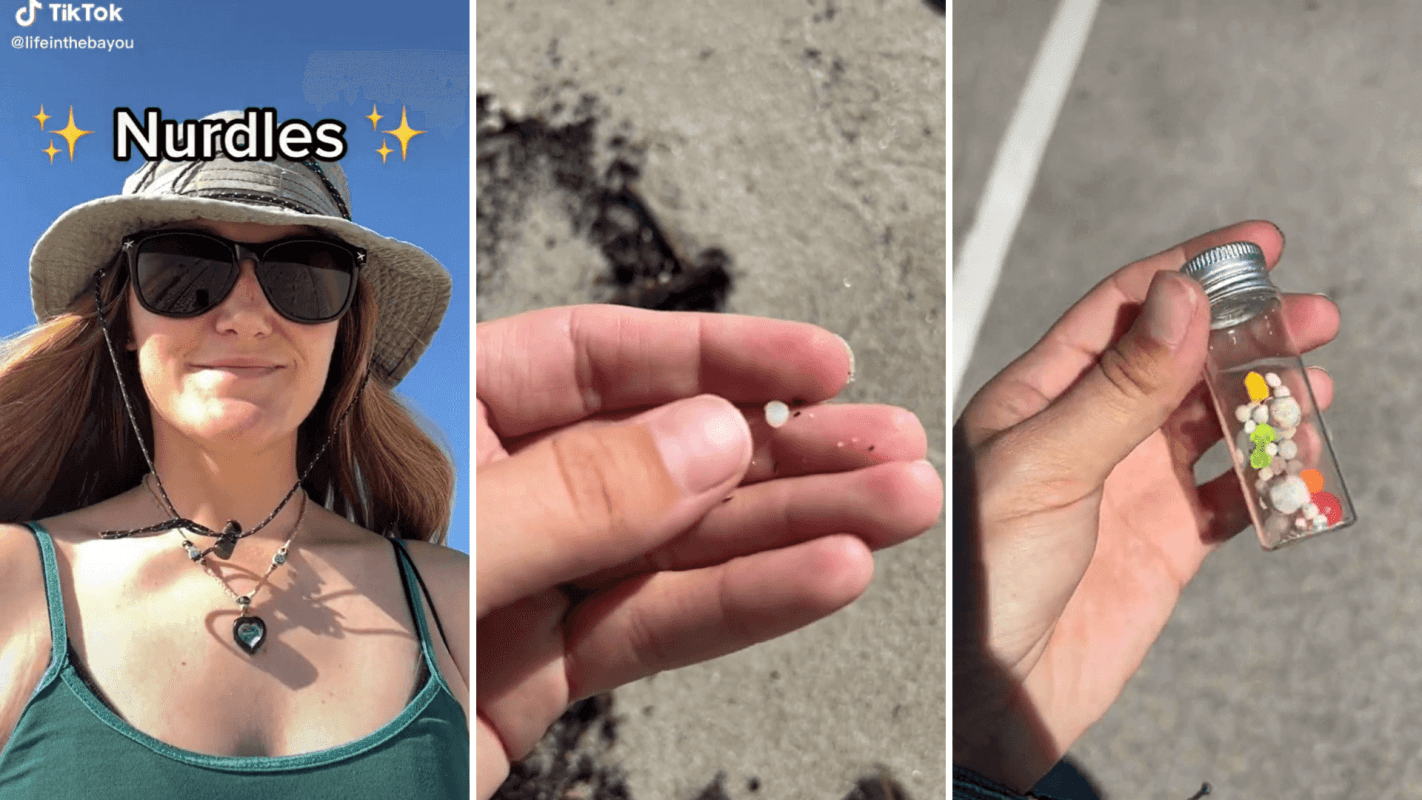"Nurdling" is like a game of I Spy that helps clean up our planet, and one woman has gone viral for it.
TikToker Kaylin (@lifeinthebayou) started posting about nurdling last year and has since drawn millions of views with her eye-opening ocean clean-up videos.
What are nurdles?
Nurdles, also known as mermaid's tears, are tiny lentil-shaped pellets that are melted down and used to manufacture various products.
From car parts to plastic bottles, nurdles are the building blocks of most plastic goods. But although they have a funny name, nurdles are no laughing matter.
How do nurdles get into the ocean?
Nurdles travel to different manufacturing facilities, usually via boat. But many of these microplastic pellets often spill overboard, polluting our oceans and coastlines.
Once nurdles enter the environment, they will continue to pollute the planet for centuries, as many plastics take hundreds of years to break down.
Shipping container spills are prominent contributors to this pollution issue.
The X-Press Pearl container ship incident is a recent example of this. In May of 2021, a cargo ship off the coast of Sri Lanka caught fire. The X-Press Pearl ship spilled an estimated 1,680 metric tonnes (over 3.7 million pounds) of nurdles into the water, making it the largest plastic spill in history.
Nurdles have become such a massive problem that they are now the second-largest source of micropollutants by weight worldwide. According to the Plastic Soup Foundation, eight trillion nurdles appear around the European Union each year alone.
How nurdles damage marine life
Fish and seabirds will often mistake nurdles for eggs and eat them. Consuming nurdles allows toxins to leach into an animal's body and poison them. Nurdles are indigestible and sit in the stomach, killing animals from digestive tract blockages or starvation.
Nurdles don't just endanger fish, either. By harming marine life, they also jeopardize the health and safety of seafood-reliant communities.
Using TikTok to make ocean cleanup a viral trend
Sifting these pellets out of the environment is the easiest way we can take action today to protect coastal communities and marine ecosystems. That's why one TikToker has popularized an ocean cleanup trend that brings awareness to the issue.
Kaylin is a biologist and conservationist and goes by @LifeInTheBayou on TikTok. Her videos where she hunts for nurdles (a process she calls "nurdling") have gained millions of views on this platform.
@lifeinthebayou Join me for a morning of nurdling 🤙🏼 #nurdling #nurdlehunter #nurdlepatrol #beachtrash #pickitup #gulfcoast #plasticproblem #environmentalstewardship ♬ original sound - Life In The Bayou 🌿
In her most popular video, she spends a couple of hours nurdling along a beach on the Gulf Coast and picking up other non-nurdle microplastics along the way.
She then bottles up her trashy treasures and reports her nurdle findings to the Nurdle Patrol or the Great Nurdle Hunt. Both databases are citizen science projects, where scientists ask the public to help them collect data for research.
Under Kaylin's most viewed TikTok, one user commented, "Being so far away from a beach is probably my biggest nurdle hurdle."
Kaylin responded, "Check along the sides of rivers and streams, too! They're showing up all over the place."
Under another one of her videos, a user commented, "We live 3 hours from Duluth MN where we will spend hours searching for sea glass, now nurdles will be added to the list."
Nurdling has become quite popular, with the hashtag "#nurdling" gaining over 11 million views on TikTok.
What happens to nurdles after they're collected?
Nurdles aren't recyclable, and throwing them away could risk them spilling back into the environment. Instead, nurdlers have gotten creative with repurposing these microplastics, turning them into art, or leaving them in jars as decor.
Join our free newsletter for cool news and cool tips that make it easy to help yourself while helping the planet.









